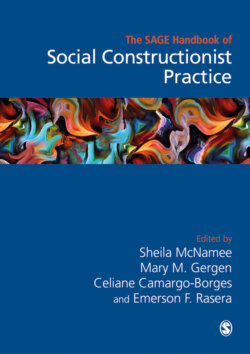Читать книгу The Sage Handbook of Social Constructionist Practice - Группа авторов - Страница 19
На сайте Литреса книга снята с продажи.
The Return of Optimism
ОглавлениеAs outlined, the optimism that sparked the early development of the social sciences can be traced in part to the promise that scientific research could solve social problems. We have glimpsed some of the reasons that the sciences could not realize these promises. However, the logics of positivist science also came to inform the attempts of practicing professionals to bring about change. One of the central logics has proved deeply problematic for practitioners, namely the logic of causality. As most educated professionals could agree, an individual's actions are neither random nor the result of voluntary whims but are determined by conditions – either environmental or hereditary. As proposed, our social institutions such as education, government, and business are similarly governed by causal conditions. Thus, as the logic goes, in order to bring about change, one must devise means of controlling or manipulating the causal conditions. Among the most visible illustrations of this orientation are Fordism in the world of work, the behaviorist movement in therapy, curriculum-centered education, the use of punishment to reduce crime, and the new public management practices of today.
Yet, while the logic is compelling, the results have been largely disappointing. In large measure, the problem with a causal approach has stemmed from the resistance and/or cleverness of those whose actions are being ‘improved’ or ‘corrected’. In the attempt to change others, a distance is often placed between the change agent and the ‘object’ of change. The former may be seen as coercive, manipulative, calloused, and dehumanizing. Feelings of resentment, suspicion, and distrust may be set in motion, triggering the development of counter-strategies – resisting or punishing those in power, or attempting to profit from the situation. Work slow-down, resistance groups, whistleblowing, cheating on tests, selling one's prescriptions, or colluding with the powerful to game the system, are all common.
From a constructionist perspective, the concept of causality is a cultural construction, one form of explanation among others. Whether a change-making practice is based on such a logic is a matter of deliberation – both pragmatic and ideological. Informed by this view, many practitioners have shifted their logic from causality to the co-construction of meaning (McNamee and Hosking, 2012). If together we co-construct and sustain our ways of life, it is reasoned, then this same process may be key to transformation. As many constructionists put it, if we change the conversation, we may change the future. This is indeed an optimistic vision, and has played a major role in the creation of dialogic practices for change – in organizations, therapy, peace building, education, medicine, and elsewhere. It is at the heart of movements such as the New OD (Marshak and Bushe, 2015), brief therapy (de Shazer, 1994), Appreciative Inquiry (Cooperrider and Whitney, 2005), and creativity by design (Lipmanowicz and McCandless, 2013).
